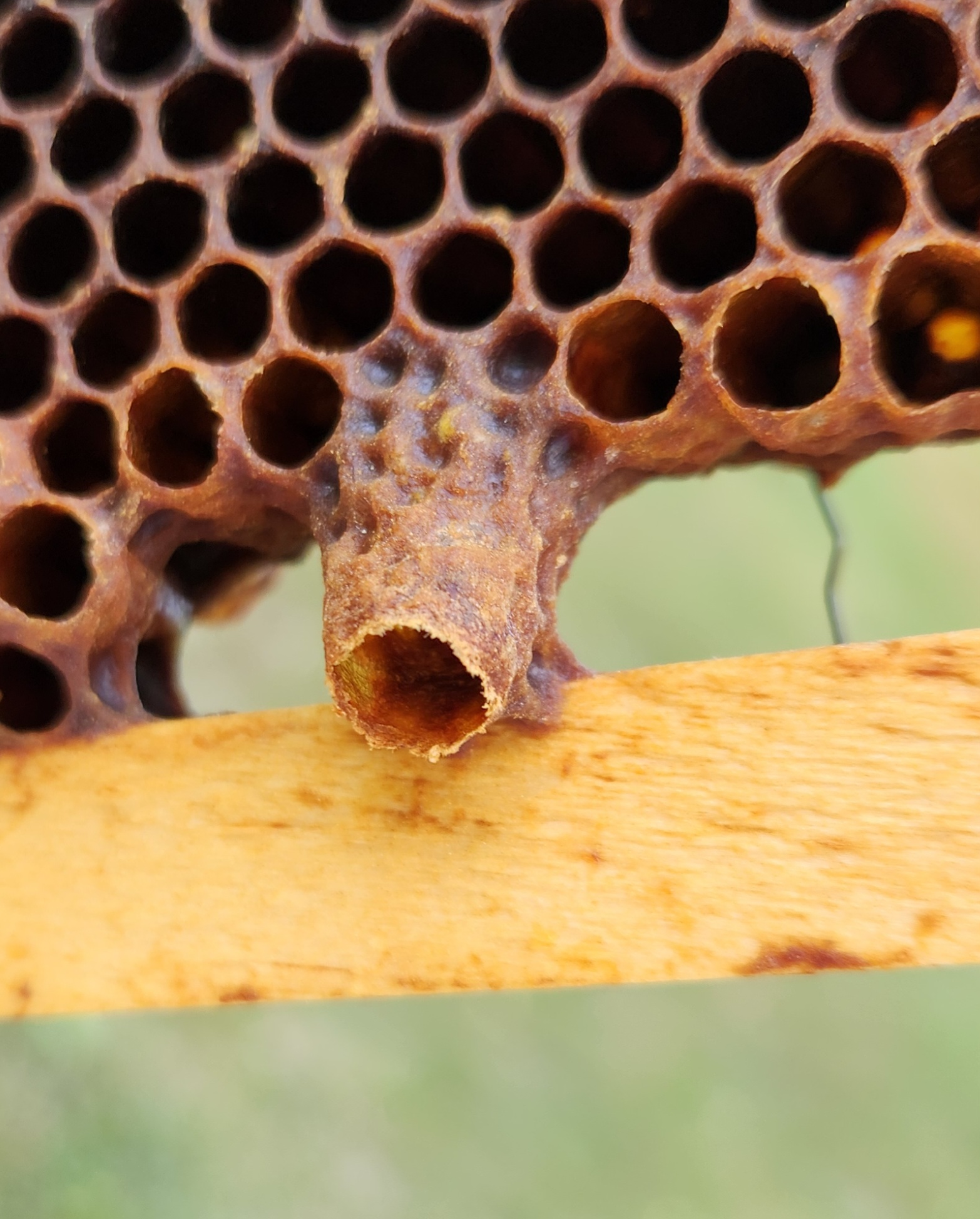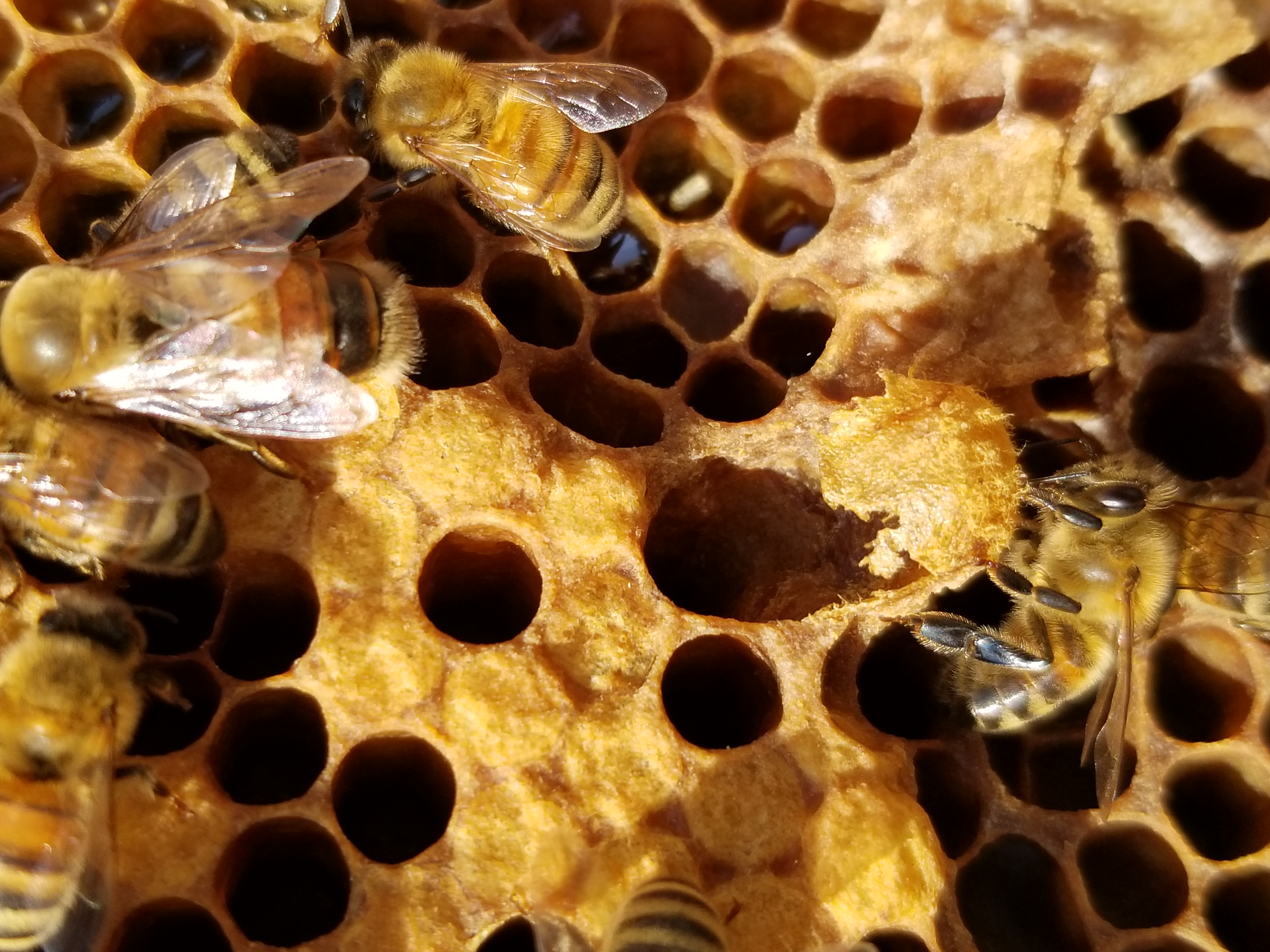What Should I Be Doing in My Apiary This Month? May
go.ncsu.edu/readext?1070953
en Español / em Português
El inglés es el idioma de control de esta página. En la medida en que haya algún conflicto entre la traducción al inglés y la traducción, el inglés prevalece.
Al hacer clic en el enlace de traducción se activa un servicio de traducción gratuito para convertir la página al español. Al igual que con cualquier traducción por Internet, la conversión no es sensible al contexto y puede que no traduzca el texto en su significado original. NC State Extension no garantiza la exactitud del texto traducido. Por favor, tenga en cuenta que algunas aplicaciones y/o servicios pueden no funcionar como se espera cuando se traducen.
Português
Inglês é o idioma de controle desta página. Na medida que haja algum conflito entre o texto original em Inglês e a tradução, o Inglês prevalece.
Ao clicar no link de tradução, um serviço gratuito de tradução será ativado para converter a página para o Português. Como em qualquer tradução pela internet, a conversão não é sensivel ao contexto e pode não ocorrer a tradução para o significado orginal. O serviço de Extensão da Carolina do Norte (NC State Extension) não garante a exatidão do texto traduzido. Por favor, observe que algumas funções ou serviços podem não funcionar como esperado após a tradução.
English
English is the controlling language of this page. To the extent there is any conflict between the English text and the translation, English controls.
Clicking on the translation link activates a free translation service to convert the page to Spanish. As with any Internet translation, the conversion is not context-sensitive and may not translate the text to its original meaning. NC State Extension does not guarantee the accuracy of the translated text. Please note that some applications and/or services may not function as expected when translated.
Collapse ▲Swarm season is in full swing but should be slowing down shortly. Many colonies have already swarmed, or ideally, they were split by the beekeeper to prevent swarming. Either way, inspect these colonies to be certain each colony has successfully requeened. If you see the queen or eggs, then you may assume everything is ok, but if not, you might have to requeen. It is important to determine this before laying workers becomes a problem, since it can be extremely difficult to requeen a colony once they have become laying workers.
This is a good time to review some bee biology and bee math. After a queen emerges from her cell, it is usually at least 10 days before she begins to lay eggs. All too often beekeepers panic and order a new queen because there is no sign of a queen, when in reality not enough time has passed since they swarmed. One way to determine if there is a virgin queen in the colony is by loo
king at the brood frames. In the center of the brood frames you should not find honey being stored. If there is a virgin queen, the workers will leave the center of the brood nest empty and even work to clean the cells in preparation for the new queen to lay. If there is any doubt, add a frame of eggs and young larvae from another hive. If the workers start making queen cells, the colony is queenless. If there is a virgin queen, the colony will not make queen cells but will continue raising the brood. Either way, you are helping out the colony to ensure its success.
There is still time left to make splits, but the opportunity is waning. The population of the colonies is still on the rise but leveling off, and drones are still plentiful. For those that are hoping to make surplus honey, splitting may not be the best option as a strong workforce is very important for a good honey crop. On the other hand, if you are hoping to increase the number of colonies in your apiary, making splits at this time is a good option. If capped swarm cells are found, the cells may be gently removed and used to your advantage. These cells can be used to split the colony where they were found or placed into a queenless split from another colony. Remember, not to tear down all queen cells in a colony until you are certain that there is still a queen present. If the colony has already swarmed and then all cells are removed, the colony will never be able to requeen.
The honey flow is still going strong. If you are planning to make som e honey this year, you better have your supers on! By the end of the month, the flow will begin to wane in the Piedmont and the eastern part of the state. The supers that were added last month should be close to full and may need another super added, which should be done prior to the previous one being completely filled. If you have drawn comb, it doesn’t hurt to add more than one super at a time, but if you are starting with foundation, it is better to add one at a time.
e honey this year, you better have your supers on! By the end of the month, the flow will begin to wane in the Piedmont and the eastern part of the state. The supers that were added last month should be close to full and may need another super added, which should be done prior to the previous one being completely filled. If you have drawn comb, it doesn’t hurt to add more than one super at a time, but if you are starting with foundation, it is better to add one at a time.
It won’t be long before it is time to harvest the honey from the supers, so start planning for it now. If you haven’t already designed your label, you should get this started and find somewhere to have them printed. Order jars now before the bee supply stores sell out. If there is anything else you will need for harvesting (e.g., uncapping tank, filters, bucket), now is the time to plan and order. Don’t wait until the last minute.
Hopefully you are already a member of your local beekeeping club. This is a great resource whenever you have questions and aren’t sure how to proceed. Asking help from more experienced beekeepers is a valuable tool and most beekeepers are happy to help newer beekeepers. Attending field days at your local club or helping others during their inspections is another way to learn more about common management practices. The more hands-on practice you can get, the more comfortable you will be working your bees. Reading beekeeping books will add to your understanding about bee biology, and there are many classes that you can take to add to that knowledge. A good place to start is right here at NC State where there are many online classes to choose from, or we have a few in person BEES Academies coming up soon. You can find more information on the NCSU Apiculture website under Extension.




